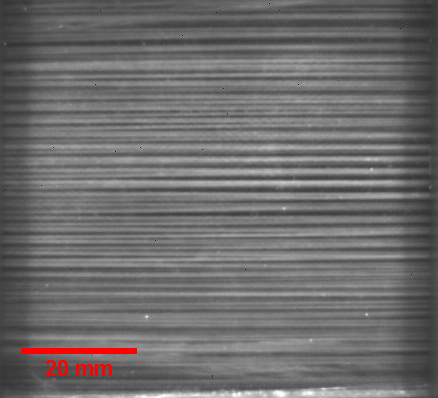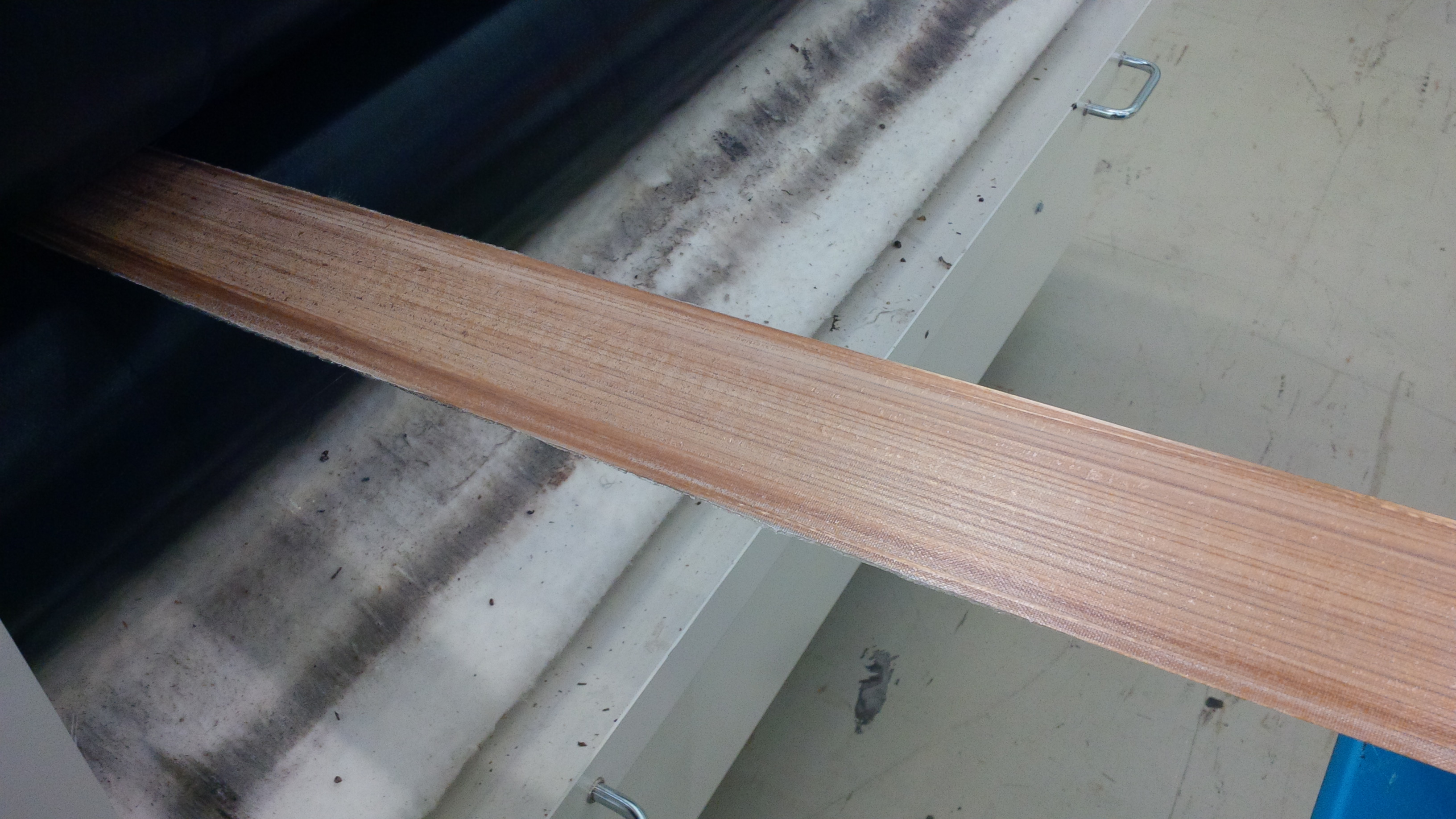Light, sturdy, sustainable – those are the demands on new construction materials. Uni-directional fibre-reinforced materials, or UD-Tapes, have very high potential. They are particularly suitable as reinforcement materials for components high strain and can be used in load-bearing areas. This means that component volumes under less strain can be filled with short fibre-reinforced materials in order to save weight and costs.
In the project »High-performance impregnation of sustainable reinforcement fibres – BioComp«, researchers from the Fraunhofer Institute for Microstructure of Materials and Systems IMWS and from the Fraunhofer Pilot Plant Center for Polymer Synthesis and Processing PAZ are working on optimising the use of sustainable raw materials for thermoplastic composite materials. There is a special focus on the improvement of the impregnation method.
Impregnation with a plastic matrix is necessary so that the fibres achieve strength and stability in order to ensure a reliable transfer of force. Knowledge from the direct impregnation of infinite fibres using smelt, but also knowledge from foil and powder impregnation on conventional composite materials should be transferred to bio-based materials in the project.
The aims are the development of long and infinitely reinforced, bio-based components into high-performance semi-finished qualities as well as corresponding quality controls directly in the manufacturing process so that highly efficient processing as well as the reduction of reject rates can be achieved.
In order to improve the quality of semi-finished products during manufacturing and the associated mechanical properties of sustainable semi-finished products, the project, which is running until 30th September 2019, will evaluate the process-related parameters for processing biogenic materials on the one hand and an inline process control on the other hand, which can provide statements about the material quality during the process.
»The connection of process-related questions and inline quality control represents an important step towards Industry-4.0 capability of the technology«, says Stephan Lehmann, project leader at Fraunhofer IMWS.
In order to manufacture thermoplastic, bio-based UD systems, powder impregnation and foil impregnation of the fibres are the methods primarily used. The low impregnation speed is the disadvantage of these methods at the moment. The main reason is the static pressure in the impregnation gap meaning that the shear thinning effects (reducing viscosity of the thermoplastic matrix material) in thermoplastic smelts cannot be fully used because the fibres and plastic are moving at the same speed. The relatively high thermal loads associated with this lead to fibre damages and signs of degradation – i.e. the loss of material properties – in the polymer. Furthermore, the use of powder and foil for fibre impregnation is more expensive. Smelt direct impregnation presents an economically more efficient option, based on this information, especially for industrial applications on a larger scale.
In part project A, scientists from Fraunhofer PAZ are developing a method for direct impregnation of sustainable fibres, allowing bio-based fibres and plastics to be processed. In order to indentify faults in the production process, integrated quality assurance is required including reliable fault-free test methods. In part project B (Fraunhofer IMWS), these test methods are examined using thermography, ultrasound and x-ray CT to determine whether they can be applied to bio-based, fibre-reinforced, thermoplastic material systems and integrated in the material production process.
»It is necessary to identify errors during production. This requires process-integrated quality assurance using fault-free test methods. Such test systems are the only way of closing quality control cycles in production and therefore achieving high-performance and efficient serial production«, says Stephan Lehmann summing up the project.



